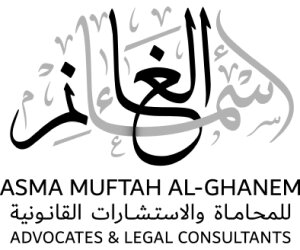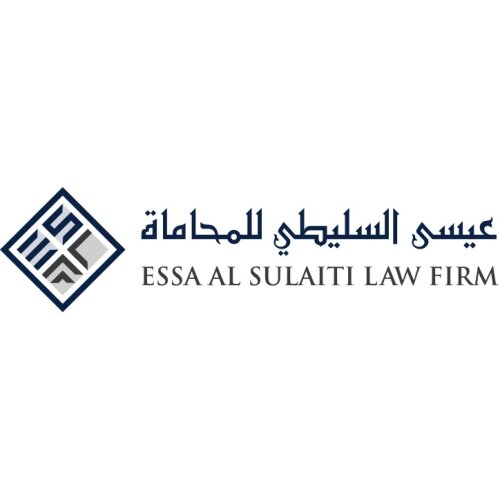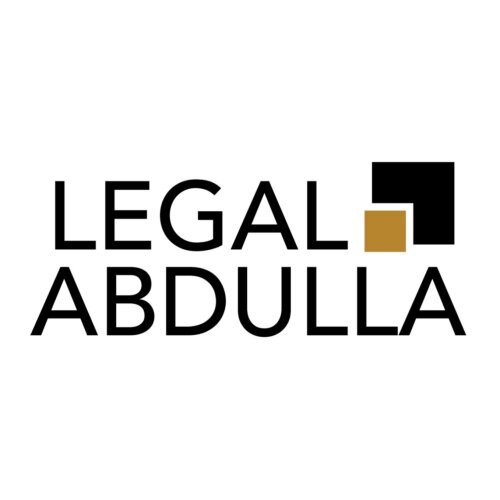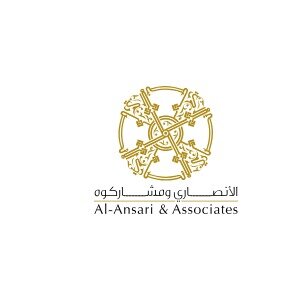Best Conveyancing Lawyers in Qatar
Share your needs with us, get contacted by law firms.
Free. Takes 2 min.
Free Guide to Hiring a Real Estate Lawyer
Or refine your search by selecting a city:
List of the best lawyers in Qatar
About Conveyancing Law in Qatar
Conveyancing in Qatar refers to the legal process involved in the transfer of real estate ownership from one party to another. This process covers a range of transactions, including the sale and purchase of land, apartments, villas, and commercial properties. Conveyancing is regulated under Qatar's real estate and property laws, and it typically requires due diligence, drafting and reviewing contracts, registering ownership, and ensuring compliance with both national and local regulations. For expatriates and foreign investors, the framework is particularly specific regarding which areas and property types can be owned or leased long-term.
Why You May Need a Lawyer
There are several situations where people require legal help with conveyancing in Qatar. These include purchasing or selling a property, managing inheritance or gifting property between family members, resolving boundary or title disputes, and conducting property transfers as part of divorce settlements. Navigating the legal framework can be complex, especially for foreigners, as there are restrictions and requirements unique to Qatar’s market. A lawyer specializing in conveyancing ensures that all agreements are legally binding, that due diligence is conducted on the property title, and assists in smooth registration with the relevant authorities, thereby reducing risks of fraud, disputes, or delays.
Local Laws Overview
The key aspects of local laws that are particularly relevant to conveyancing in Qatar include regulations regarding foreign ownership, registration of property, and the legal documentation required for transfer. Non-Qatari individuals and businesses can own property in designated areas as specified by Qatari law. The process requires approval from the Ministry of Justice and, in some cases, the Ministry of Municipality. All real estate transactions must be documented in writing and registered at the Real Estate Registration Department. There are also mandatory checks to ensure the property is free from encumbrances or legal disputes. Taxes and fees are applicable, and environmental or zoning considerations may come into play for certain types of property transactions.
Frequently Asked Questions
What is conveyancing?
Conveyancing is the legal process of transferring ownership of real estate property from a seller to a buyer, including preparation, execution, and registration of legal documents.
Can foreigners own property in Qatar?
Yes, but only in designated areas approved by the government. There are specific rules and procedures that must be followed, and ownership may be limited in certain zones.
What documents are required for property transfer?
Typical documents include valid identification, proof of ownership, the sale and purchase agreement, proof of settlement of municipal and utility dues, and a no objection certificate from relevant authorities.
How long does the conveyancing process take in Qatar?
The timeline can vary based on the complexity of the transaction and responsiveness of all parties involved, but it usually takes several weeks to complete after all documents are submitted and approved.
Are there restrictions on property ownership for companies?
Yes, ownership by foreign companies is generally subject to additional regulations and may be allowed only for real estate investment purposes in specified locations.
What fees or taxes are involved in real estate transfer?
There are government fees for registration and sometimes additional taxes or service charges, depending on the type and value of the property involved.
Do I need a lawyer for conveyancing in Qatar?
While it is not legally required to hire a lawyer, it is highly recommended to ensure compliance, protect your interests, and facilitate the process, especially for non-Qatari nationals.
What are the risks if conveyancing is not done properly?
Poorly managed conveyancing can result in loss of money, unresolved disputes, invalid transfers, or future legal complications regarding property rights.
How is property ownership registered?
Ownership is registered at the Real Estate Registration Department under the Ministry of Justice, upon submission of all necessary documentation and payment of fees.
Can disputes arise after the transfer?
Yes, disputes may arise due to boundary issues, unlawful prior transactions, or other encumbrances. Proper due diligence and legal oversight reduce the likelihood of such disputes.
Additional Resources
If you are seeking more information or official guidance on conveyancing in Qatar, the following resources can help:
- Ministry of Justice - Real Estate Registration Department
- Ministry of Municipality
- Qatar Central Municipal Council (for zoning and planning issues)
- Embassies and expatriate community organizations (for country-specific advice and support)
- Registered law firms specializing in real estate law in Qatar
Next Steps
If you need legal assistance with conveyancing in Qatar, consider taking the following steps:
- Gather all relevant documents related to your property or intended transaction.
- Consult a local lawyer who specializes in real estate or conveyancing law to discuss the specifics of your situation.
- Clarify your rights and obligations under Qatari laws, especially if you are a foreigner or representing a company.
- Arrange for a legal review of all agreements and title documents before committing to a transaction.
- Follow the official process for registration and ensure all fees and taxes are paid to avoid delays or complications.
Taking these steps with the help of a qualified legal professional will help you navigate conveyancing efficiently and securely in Qatar.
Lawzana helps you find the best lawyers and law firms in Qatar through a curated and pre-screened list of qualified legal professionals. Our platform offers rankings and detailed profiles of attorneys and law firms, allowing you to compare based on practice areas, including Conveyancing, experience, and client feedback.
Each profile includes a description of the firm's areas of practice, client reviews, team members and partners, year of establishment, spoken languages, office locations, contact information, social media presence, and any published articles or resources. Most firms on our platform speak English and are experienced in both local and international legal matters.
Get a quote from top-rated law firms in Qatar — quickly, securely, and without unnecessary hassle.
Disclaimer:
The information provided on this page is for general informational purposes only and does not constitute legal advice. While we strive to ensure the accuracy and relevance of the content, legal information may change over time, and interpretations of the law can vary. You should always consult with a qualified legal professional for advice specific to your situation.
We disclaim all liability for actions taken or not taken based on the content of this page. If you believe any information is incorrect or outdated, please contact us, and we will review and update it where appropriate.
Browse conveyancing law firms by city in Qatar
Refine your search by selecting a city.

















